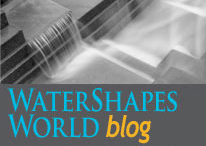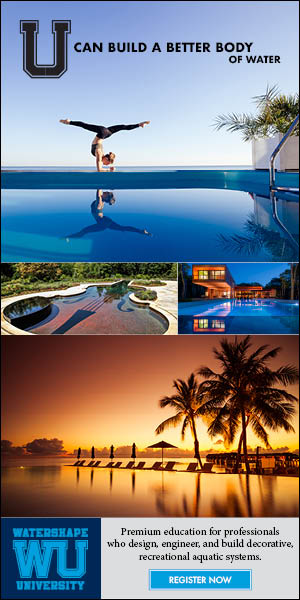WaterShapes
Ben Lasseter welcomes challenging projects, especially those where watershapes are integral to the home's design. Working as part of an exclusive project team, one that included a legendary architect, Lasseter's firm recently completed a shimmering all-white pool that is as much a part of the property's aesthetics as the roofline of the house itself.
While fossil-fuel heating dominates the pool market, and electric heating prevails in hot tubs, designer, builder and energy-efficiency specialist Douglas Cook sees value in keeping the alternatives in mind, especially for cost-minded and/or ecologically inclined homeowners, who might be open to sustainable water-heating solutions.
S.R. Smith (Canby, OR) has introduced the iStar controller to give users advanced color control…
Pentair Commercial (Sanford, NC) offers the IntelliChem Water Chemistry Controller. Designed for continuous monitoring of…
Accurate cost estimating is essential for all successful watershape construction businesses, says Dave Peterson, who is presenting an upcoming "synchronous" (live) online course on job costing. Critical in maximizing profits and avoiding liability, it's even more so, he says. during this time of frenzied sales activity.
The Blue Mind concept, popularized by author and marine biologist Wallace "J" Nichols manifests in a spectrum of ways and the message is spreading, as evidenced in online resources that echo and amplify the benefits of an aquatic lifestyle and a broader appreciation of science and the natural world.
Preventing voids, or "shadows" during the shotcrete application process is crucial, says Dave Peterson, and it's particularly tricky in designs with steel close together. In those cases, he says, use this detail.
Mark and Zachary Trapani specialize in elevated, above-grade pools, mostly in New York City, a niche that requires careful analysis, creativity and sharp eyes for detail. Here in the Part 2 of their look at the world from high above the ground, they share the challenges of installing new pools above the ground in existing buildings.
While some designers are known for a particular style, I've always believed it's far better to be comfortable working across a spectrum of design modalities. Creative bandwidth enables the designer's ability to focus on the clients' ideas and desires, as well as the needs of the site itself - and it keeps you from falling into a creative rut. Case in point: Last month in Part 1 (click here), I described an unusual






















